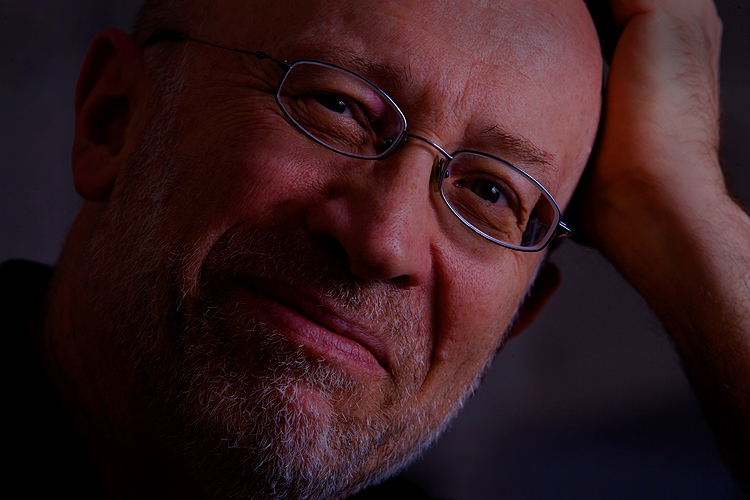Tony Judt – Ill Fares The Land
Arts & Culture, Books - Posted on Monday, August 2, 2010 15:52 - 1 Comment
“We know what things cost, but have no idea what they are worth,” Tony Judt writes in the introduction to his latest work, Ill Fares the Land. Judt is one of the English-speaking world’s most accomplished academics, and he shamelessly identifies with the waning Left. His latest book is an impassioned plea to change the way we live, to broaden the limits of public conversation.
Faith in the market and insistence on “efficiency” have led us, according to Judt, to lose our ability to do the things most precious to humans: to imagine, discuss and act for our collective wellness. The author writes, “Our disability is discursive: we simply do not know how to talk about these things anymore.” Policy debate is now a tense and nasty scuffle between unimaginative ideas.
The book’s first sections beat the reader over the head with the idea that we (that big “We” that is meant to represent everyone) are lost and on a destructive downward spiral. To set things onto a better path, Judt argues, we need to discard the misguided, narrow view of the public sphere that is dominant today.
Judt is a social democrat; he makes the point that while blaming the public sector is convenient, government is the only institution explicitly accountable to everyone. It’s not perfect of course, but it is (in theory at least) interested in the public good. The Western world’s hallowed corporations are accountable only to their shareholders. Abandoning government as a vehicle for reform will only further erode social cohesion.
This lean, confrontational book comes on the heels of unfettered capitalism’s most theatrical failure. The whittled-down Left has squandered, it has been argued, a huge opportunity to show the mainstream that new ways of seeing and thinking are desirable. After the burst bubbles of the past couple of years, it’s pretty much impossible to argue with a straight face that financial markets properly regulate themselves. In light of these great upward shifts of wealth, no civic movement has gained mainstream influence.
American public policy debates over health care and immigration are illustrative sideshows of what happens when citizens lose their connections to each other. The perverse contradictions of contemporary life are voiced by talking heads everyday: preaching austerity for governments, but refusing to speak ill of profligate financial firms; railing against the excesses of single-payer healthcare but supporting permanent wars with costs in the trillions.
This work reads with a sense of intellectual partisanship: Judt has a side and sticks to it. Like all partisan arguments, it can gloss over the unsavory aspects of its own team.
The book revolves almost exclusively around Europe and North America. The countries suffering most acutely from the described problems are hardly mentioned, with the exception of a brief section blandly titled “Globalization.”
The past few decades have not been a total waste. We are much better at tolerating difference now than we were when we in the tightly bound era Judt longs to return to. The fanning out of society has allowed for the growth of more open forms of thought: conditions have improved for immigrants, women and homosexuals.
It’s true that privatization often loots the future by selling off assets as a source of easy cash, but Judt’s claim that all privatization is bad all the time is a bit off. Yes, private buyers will only take on sagging public utilities at steep discounts, but there are cases where public enterprises are sunk costs that getting a low price for them is preferable to hanging on and thus letting debt grow indefinitely. Greece’s government probably wishes it had unloaded the country’s rail transit when there were offers.
This is a book intended for the young, in whom Judt clearly believes and is deeply concerned for. Young people today don’t have the perspective of having lived through an economic depression; they came up in an era of plenty and expected conditions to continue improving. Now, they’re heading into a crisis while lacking the experience and intellectual tools to deal with it. With universities cutting humanities programs, it’s unlikely that Ill Fares the Land will enjoy a large readership among the people Judt wishes to reach, or spark the youthful debate he admirably calls for.
This book is much better at describing what went wrong than it is at detailing how it might get better. Judt succeeds at conveying the urgency of the present, but is too vague in suggesting ways forward. He has made his case, with erudition and sense, now it’s up to that big “we” to decide if these ideas will be preserved in policy and discourse, as Judt would have it, or behind glass with other relics of the past.
Steven Borowiec is a writer and editor based in Seoul, South Korea.
1 Comment
Ceasefire Magazine – R.I.P. Tony Judt (1948-2010)



[…] and his exhuberent energy in purusing his various interests, projects and causes.His last book, ill fares the land, published earlier this year, is a fitting testament for the new generation of progressive-minded […]